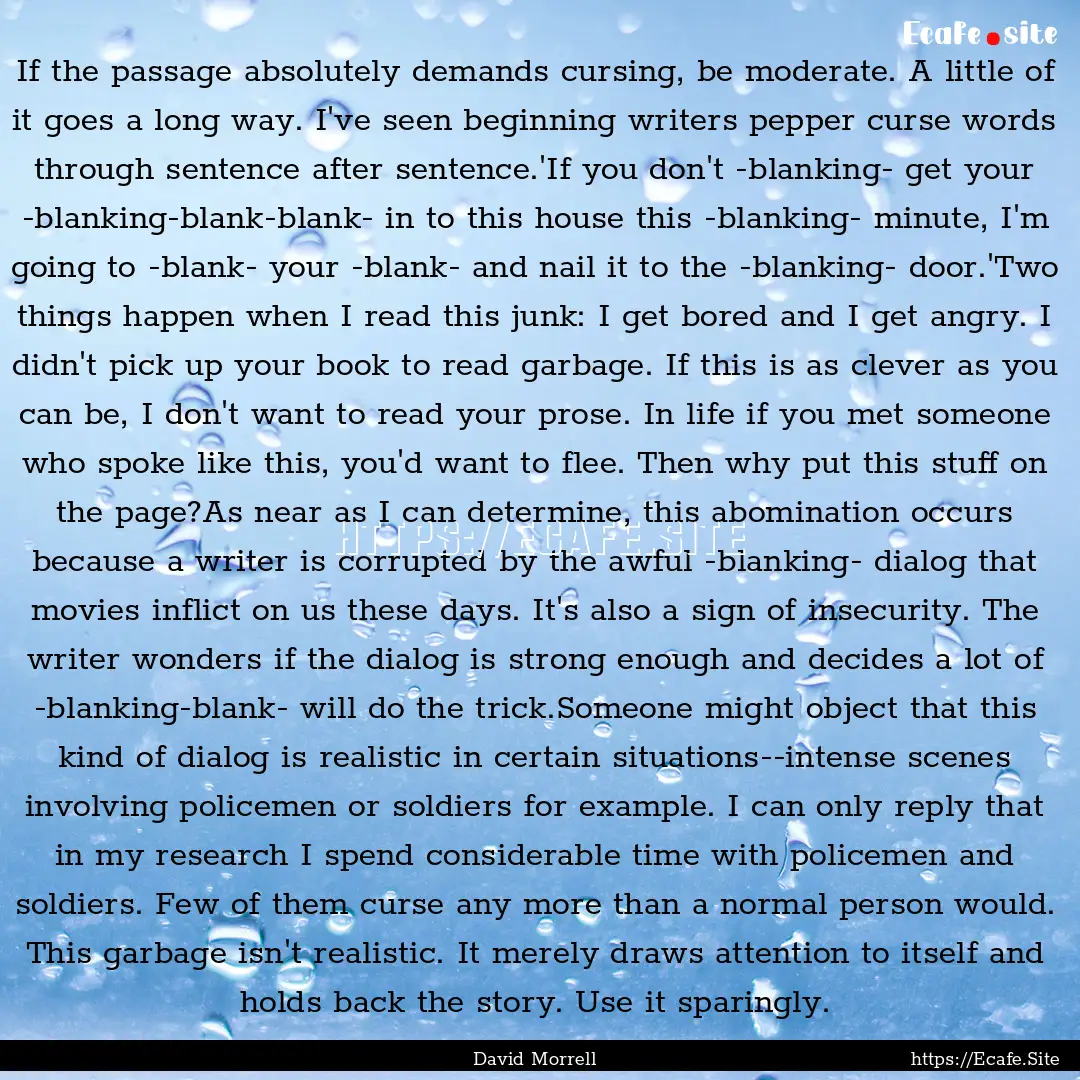
Report, if you have a problem with this page“ If the passage absolutely demands cursing, be moderate. A little of it goes a long way. I've seen beginning writers pepper curse words through sentence after sentence.'If you don't -blanking- get your -blanking-blank-blank- in to this house this -blanking- minute, I'm going to -blank- your -blank- and nail it to the -blanking- door.'Two things happen when I read this junk: I get bored and I get angry. I didn't pick up your book to read garbage. If this is as clever as you can be, I don't want to read your prose. In life if you met someone who spoke like this, you'd want to flee. Then why put this stuff on the page?As near as I can determine, this abomination occurs because a writer is corrupted by the awful -blanking- dialog that movies inflict on us these days. It's also a sign of insecurity. The writer wonders if the dialog is strong enough and decides a lot of -blanking-blank- will do the trick.Someone might object that this kind of dialog is realistic in certain situations--intense scenes involving policemen or soldiers for example. I can only reply that in my research I spend considerable time with policemen and soldiers. Few of them curse any more than a normal person would. This garbage isn't realistic. It merely draws attention to itself and holds back the story. Use it sparingly. ”

David Morrell
From : The Successful Novelist: A Lifetime of Lessons about Writing and Publishing



